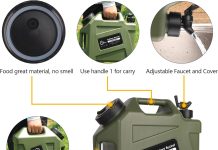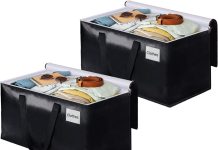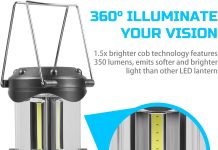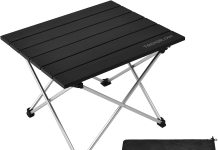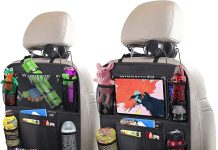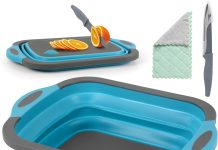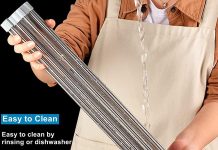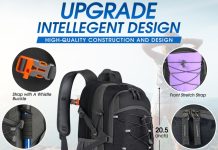Planning a camping trip? Look no further! We’ve got you covered with our comprehensive checklist of camping essentials. Whether you’re a seasoned camper or heading out for your very first adventure in the great outdoors, this list will ensure that you don’t forget any vital gear or supplies. From tents and sleeping bags to cooking equipment and first aid kits, our checklist has everything you need to make your camping experience comfortable and enjoyable. So grab your backpack and get ready to embark on an unforgettable outdoor excursion!
Review contents
Clothing and Personal Items
Clothing
When packing for a camping trip, it’s important to remember that comfort is key. We want to make sure we have clothing that is suitable for outdoor activities and provides protection from the elements. This includes items such as t-shirts, long-sleeved shirts, pants, shorts, and socks. It’s also a good idea to pack a few extra layers, like a lightweight jacket or sweatshirt, in case the weather takes a turn.
Footwear
Having the right footwear is essential for any camping adventure. We should pack a sturdy pair of hiking boots or shoes to ensure comfort and stability while exploring the great outdoors. Additionally, it’s important to bring along a pair of water shoes or sandals for activities near water, as well as a pair of comfortable camp shoes or slippers for lounging around the campsite.
Rain Gear
Mother Nature can be unpredictable, so it’s always a good idea to come prepared with rain gear. A waterproof or water-resistant jacket and pants will help keep us dry during unexpected showers. Investing in a quality rain cover for our backpacks is also beneficial to protect our gear from getting wet.
Sleeping Gear
Getting a good night’s sleep is crucial while camping, so we mustn’t forget our sleeping gear. A reliable tent that can accommodate our group size is essential. It’s important to choose a tent with proper ventilation and waterproof capabilities to ensure comfort and protection from the elements. Additionally, a high-quality sleeping bag designed for the expected temperature range and a comfortable sleeping pad will help us feel well-rested and ready for each day’s adventures. Don’t forget to pack a pillow for added comfort during the night.
Personal Items
While camping, it’s essential to have a few personal items that can make our experience more enjoyable and convenient. Some commonly forgotten items include sunscreen, insect repellent, a hat, sunglasses, and a lightweight towel. It’s always a good idea to bring a small mirror, basic toiletries, and a first aid kit for any minor cuts or scrapes that may occur while exploring.
Shelter and Sleeping
Tent
Choosing the right tent is essential for a comfortable and enjoyable camping experience. Consider the size and capacity, as it should comfortably fit all members of the camping group. Look for a tent made of durable and weather-resistant materials to ensure it can withstand various conditions. Proper ventilation and easy setup are also important factors to consider.
Sleeping Bag
A good sleeping bag is crucial to ensure a restful night’s sleep. Look for a sleeping bag that is suitable for the expected temperatures during the camping trip. Consider factors like insulation type, temperature rating, and size. Synthetic or down sleeping bags are popular choices, each with their own benefits. It’s also worth considering the shape and length of the sleeping bag for maximum comfort.
Sleeping Pad
A sleeping pad is essential for added comfort and insulation while sleeping in a tent. Look for a sleeping pad that is lightweight, compact, and easy to inflate and deflate. Consider factors like thickness, material, and insulation properties to ensure a comfortable night’s sleep.
Pillow
A camping pillow is a small luxury that can greatly enhance our sleeping experience. Look for a pillow that is lightweight, compact, and comfortable. There are various options available, including inflatable pillows, compressible pillows, and even pillowcases designed to be stuffed with clothing.
Camping Chair
Having a comfortable camping chair can make a world of difference when it comes to relaxation and enjoying the campsite. Look for a portable, lightweight chair that is easy to set up and sturdy enough to support our weight. Consider features like cup holders, armrests, and a carrying bag for added convenience.
Cooking and Food
Camp Stove
A camp stove is an essential item for cooking meals while camping. There are various types available, including propane, butane, and multi-fuel stoves. Consider factors like size, weight, and fuel efficiency when choosing a camp stove. It’s also important to pack extra fuel canisters based on the length of our camping trip.
Cookware
Pack a set of durable and lightweight cookware, such as pots, pans, and utensils. Look for non-stick options to simplify cooking and cleaning. Consider the number of people in our group and the types of meals we plan to cook while camping. It’s important to have a variety of sizes to accommodate different dishes.
Utensils
Bring along a set of utensils, including spoons, forks, and knives, specifically designed for camping purposes. Look for compact and lightweight options, such as utensil sets with foldable handles. It’s important to have enough utensils for everyone in our camping group.
Cooler
A cooler is essential for keeping perishable food and drinks fresh during our camping trip. Look for a cooler with insulation properties, durability, and a secure closure system. Consider the size and capacity based on the length of our trip and the amount of food and drinks we plan to store.
Food and Drinks
When planning our camping menu, consider a combination of non-perishable items and fresh ingredients that can be stored in the cooler. Bring plenty of snacks, as well as easy-to-prepare meals that require minimal cooking time and equipment. Don’t forget to pack enough water for hydration throughout the trip.
Fire and Lighting
Firewood and Fire Starters
Check the camping regulations and restrictions regarding firewood collection at the camping site. If permitted, collect or purchase firewood beforehand. It’s also essential to pack fire starters, such as matches or lighters, to make starting a fire easier and more convenient. Consider bringing fire starters or tinder made from natural materials to minimize the impact on the environment.
Matches or Lighter
Pack waterproof matches or a reliable lighter to ensure we can easily start a fire when needed. It’s a good idea to bring multiple options and store them in different waterproof containers to ensure we have backups in case of emergencies or if one gets lost.
Headlamp or Flashlight
A headlamp or flashlight is essential for illuminating our way during nighttime or in low-light situations. Look for lightweight and durable options with adjustable brightness settings. It’s also important to pack extra batteries or consider a rechargeable option for longer camping trips.
Lantern
A lantern can provide ambient lighting at the campsite and in the tent. Look for lanterns that are lightweight, compact, and have adjustable brightness settings. Consider options with battery-powered or solar-powered capabilities for convenience.
Extra Batteries
Don’t forget to pack extra batteries for all our electronic devices, including flashlights, lanterns, and headlamps. It’s important to have backups to ensure we have a reliable source of light throughout our camping trip.
Navigation and Safety
Map and Compass
Even in the age of GPS devices, it’s essential to bring a map and compass. Familiarize ourselves with the camping area and plan our routes using a map. Learn basic compass navigation skills to ensure we can find our way if our electronic devices fail or lose signal.
GPS Device
Consider bringing a GPS device for navigation purposes, especially if exploring unfamiliar terrain. Look for a rugged and waterproof GPS device with reliable satellite connectivity. Preload maps and plan routes in advance to ensure accuracy and convenience.
First Aid Kit
A well-stocked first aid kit is crucial for any camping trip. It should include essentials like adhesive bandages, antiseptic wipes, gauze pads, medical tape, pain relievers, and any necessary prescription medications. Familiarize ourselves with the contents of the first aid kit and its usage before embarking on the camping trip.
Emergency Whistle
An emergency whistle is a valuable tool for signaling for help in case of emergencies or getting lost. Look for a durable and loud whistle that can be easily attached to our backpack or clothing. Ensure everyone in the camping group has their own whistle for added safety.
Knife or Multi-tool
A reliable knife or multi-tool is a versatile tool that can be used for various tasks while camping. Look for a compact and durable option with essential features like a sharp blade, scissors, a can opener, and a screwdriver. Ensure safe storage and always exercise caution when handling sharp objects.
Hydration and Water
Water Bottles
Bringing an adequate supply of water bottles is crucial for staying hydrated while camping. Look for durable, leak-proof, and BPA-free water bottles that are reusable. Consider bringing multiple bottles per person to ensure we have enough water throughout our camping trip.
Water Filter or Purification Tablets
If we plan to source water from natural sources like streams or lakes, it’s essential to bring a water filter or purification tablets to ensure the water is safe to drink. Look for portable and lightweight options that can effectively remove bacteria, protozoa, and other contaminants from the water.
Water Bladder
A water bladder or hydration reservoir is a convenient way to carry and access water while on the move. Look for a bladder with a suitable capacity and a hydration system compatible with our backpack. Consider options with insulation properties to keep the water cool throughout the day.
Water Storage Container
Having a water storage container, such as a collapsible water jug or water bag, is useful for storing larger amounts of water at the campsite. Look for containers that are durable, leak-proof, and easy to fill and pour from. Ensure the container is easy to clean and maintain for long-term use.
Water Treatment System
For longer camping trips or when camping in remote areas with limited water availability, consider a water treatment system such as a gravity filter or water purifier. These systems can effectively remove bacteria, viruses, and other contaminants from water sources, ensuring safe drinking water.
Tools and Miscellaneous
Camp Axe or Hatchet
A camp axe or hatchet is a useful tool for chopping firewood, clearing vegetation, and other campsite tasks. Look for a compact and lightweight option with a durable blade and a comfortable handle. Ensure safe storage and always exercise caution when using an axe or hatchet.
Shovel
A compact and sturdy camping shovel can be beneficial for tasks like digging fire pits, trenches, or makeshift latrine holes. Look for a folding shovel with a durable construction and a comfortable grip. Ensure safe storage and consider a carrying case to prevent damage to other camping gear.
Rope or Cord
Having a length of rope or cord is essential for various camping tasks, from securing tents to hanging food away from wildlife. Look for lightweight and strong options, such as nylon or paracord. Consider the length and thickness based on the intended use and ensure proper knot-tying skills.
Duct Tape
Duct tape is a versatile item that can be useful for emergency repairs, gear modifications, or securing items together. Pack a small roll of duct tape, ensuring it is easily accessible when needed. Consider wrapping a few feet around a pencil or water bottle to save space.
Repair Kit
A basic repair kit can come in handy for fixing gear or equipment that may unexpectedly break during the camping trip. Include essentials like extra tent stakes, a sewing kit, fabric patches, and adhesive patches. Familiarize ourselves with basic repair skills to ensure we can fix minor issues on the go.
Entertainment and Recreation
Books or Magazines
Having some form of entertainment, such as books or magazines, can be enjoyable during downtime at the campsite. Choose options that are lightweight and easily packable. Consider genres or topics that appeal to the interests of the camping group.
Playing Cards
Playing cards are a classic form of entertainment that can be enjoyed by all ages. Pack a deck of cards and explore various card games that can be played around the campfire or inside the tent during bad weather.
Fishing Gear
If fishing is an activity we enjoy, don’t forget to pack fishing gear. This includes fishing rods, lines, hooks, and any necessary bait or lures. Check local fishing regulations and obtain any required licenses beforehand.
Bicycles or Kayaks
If we plan to explore the surrounding areas by bike or kayak, make sure to pack the necessary gear. This includes bicycles, helmets, repair tools, and life jackets or personal flotation devices for kayaking. Ensure all gear is properly secured for transportation.
Portable Speaker
If music is part of the camping experience, consider bringing a portable and waterproof speaker. Look for options with long battery life and Bluetooth connectivity for easy pairing with our devices. Be mindful of any noise restrictions in the camping area and respect the tranquility of nature.
Personal Safety and Security
Personal Locator Beacon
For added personal safety, especially when camping in remote areas, consider bringing a personal locator beacon (PLB). A PLB can transmit an emergency distress signal to search and rescue authorities, enabling a faster response in case of emergencies or getting lost.
Bear Spray
If camping in bear country, it’s important to take precautions for personal safety. Bear spray is a useful tool for deterring aggressive bears in case of encounters. Familiarize ourselves with proper usage techniques and keep the bear spray easily accessible when hiking or exploring.
Safety Whistle
In addition to the emergency whistle mentioned earlier, each person in the camping group should have a personal safety whistle. These small devices can be used to alert others in case of emergencies or to attract attention if lost.
Lockable Storage Box
A lockable storage box or container can provide extra security for valuable items or personal belongings while camping. Consider the size and durability of the box, ensuring it can withstand exposure to the elements and potentially deter theft.
Emergency Radio
Having an emergency radio can provide access to important weather updates and emergency broadcasts while camping. Look for a portable and battery-powered radio with AM/FM capabilities and NOAA weather alerts. Familiarize ourselves with the operation and tuning functions before the camping trip.
Cleanliness and Sanitation
Toilet Paper
Pack an ample supply of toilet paper for hygiene purposes. Consider storing it in a waterproof container to keep it dry and easily accessible. Remember to follow Leave No Trace principles by properly disposing of used toilet paper in designated waste bags or burying it at least 200 feet away from water sources.
Hand Sanitizer
Hand sanitizer is a convenient tool for maintaining hygiene when access to soap and water is limited. Pack a travel-sized bottle of hand sanitizer and use it before meals and after using the restroom.
Biodegradable Soap
If using soap for cleaning dishes or personal hygiene, choose biodegadable options to minimize the impact on the environment. Properly dispose of soapy water at least 200 feet away from water sources to prevent contamination.
Towel
Pack a lightweight and quick-drying towel for personal hygiene purposes. Look for options specifically designed for camping, with features like absorbency and compactness. Ensure it is properly dried after each use to prevent odors and bacteria growth.
Trash Bags
Properly managing waste is crucial to maintain a clean and environmentally friendly campsite. Pack an adequate number of trash bags to collect and dispose of any garbage generated during the camping trip. Follow Leave No Trace principles and leave the campsite in the same condition, or better, than we found it.
In conclusion, ensuring we have the necessary camping gear and supplies is essential for a successful and enjoyable outdoor adventure. From clothing and personal items to tools and entertainment, each item on this comprehensive checklist contributes to our comfort, safety, and overall experience while camping. Remember to plan and pack according to the specific needs and duration of the camping trip, always prioritize safety, and respect the environment by practicing Leave No Trace principles. Happy camping!



